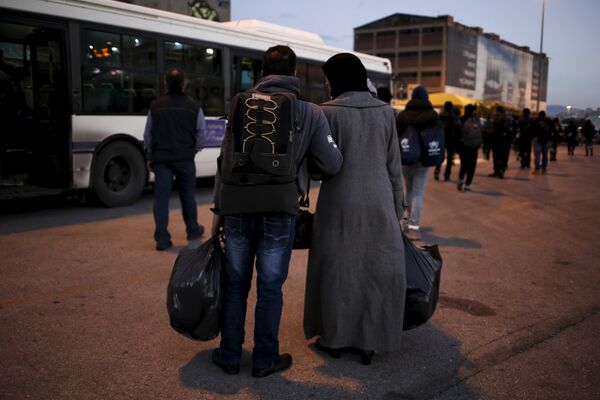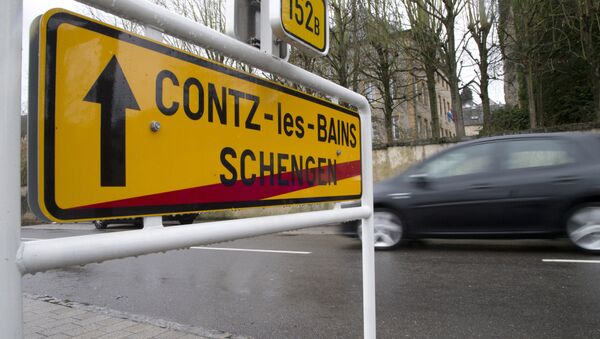His remarks come as 10 of the 26 Schengen member states, including Sweden, Belgium, Austria, Hungary and Macedonia, have already introduced temporary border controls within the Schengen free-travel zone amid the ongoing migration crisis in Europe.
All this has led to a so-called a domino effect, Makarian says, pointing to huge "human traffic jams" currently in place in Europe's southern regions, where camps of Syrian refugees have taken root. The situation has left Greece particularly hard hit, according to Makarian.

"Athens, the capital of a bankrupt state, is literally suffocating. In September 2015, a decision was made to receive 160,000 refugees on EU territory within two years, something that will certainly never be implemented," he says.
Commenting on the introduction of border controls, he says that even traditional fraternal nations, such as Austria and Germany, as well as Belgium and France, have turned their back on each other.
However, the Schengen Zone is not to blame because it is the states themselves that did their best to deteriorate the situation due to "either weakness or miserable domestic political schemes," according to Makarian.
This is why he comes to conclusion that the architecture of the Schengen Area, which was established more than three decades ago, may collapse in the near future.
The European states are still striving to find an optimal solution to the massive refugee crisis, with hundreds of thousands of people fleeing conflict-torn countries in the Middle East and North Africa in search of safety and refuge in Europe.




